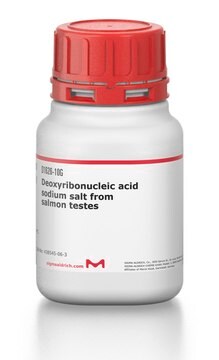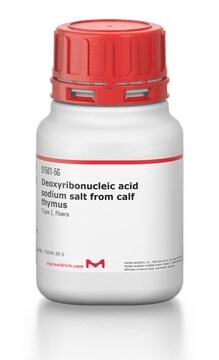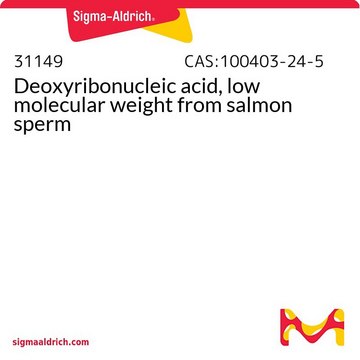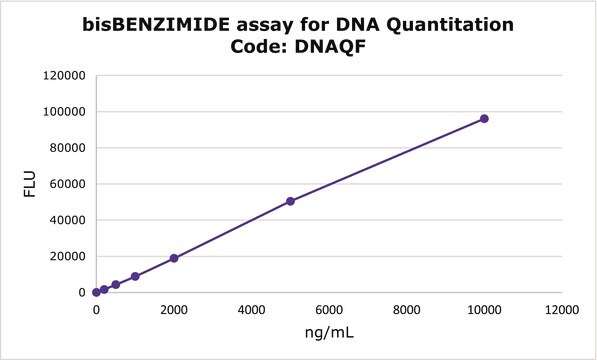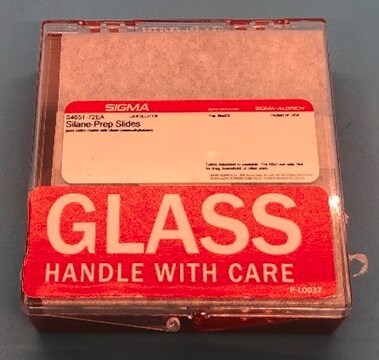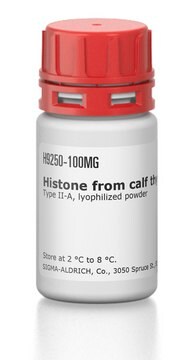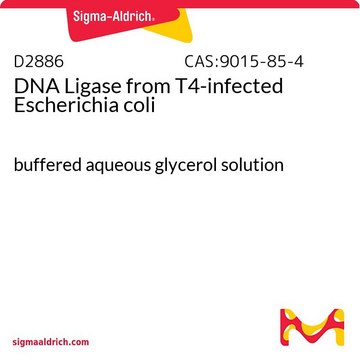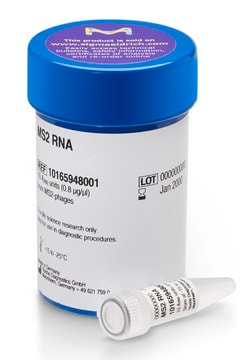D3779
Lambda Phage DNA, Methylated from Escherichia coli host strain W3110
solution
About This Item
Produits recommandés
Qualité
for molecular biology
Niveau de qualité
Forme
solution
Poids mol.
31.5 × 103 kDa
48 kb
Concentration
556 μg/mL
Adéquation
suitable for substrate for restriction endonucleases
Conditions d'expédition
dry ice
Température de stockage
−20°C
Vous recherchez des produits similaires ? Visite Guide de comparaison des produits
Description générale
Spécificité
Application
- in magnetic tweezers measurements
- in the preparation of 35S-labeled DNA
- in the preparation of coupled standards (DNA + RNA)
Infecting E. coli strain W3110 with lambda C1857 strain creates E. coli lysogen cultures. The phage is released from E. coli cell pellets by lysing with a high salt buffer, pH 8.0. The crude mixture is passed through a series of enzymatic steps, multiple cesium gradients, and phage DNA is dialyzed against 1 mM Tris-HCl, pH 8.0, and 1 mM magnesium chloride. The DNA is finally extracted by phenol-chloroform solution.
Définition de l'unité
Forme physique
Produit(s) apparenté(s)
Code de la classe de stockage
10 - Combustible liquids
Point d'éclair (°F)
Not applicable
Point d'éclair (°C)
Not applicable
Certificats d'analyse (COA)
Recherchez un Certificats d'analyse (COA) en saisissant le numéro de lot du produit. Les numéros de lot figurent sur l'étiquette du produit après les mots "Lot" ou "Batch".
Déjà en possession de ce produit ?
Retrouvez la documentation relative aux produits que vous avez récemment achetés dans la Bibliothèque de documents.
Les clients ont également consulté
Notre équipe de scientifiques dispose d'une expérience dans tous les secteurs de la recherche, notamment en sciences de la vie, science des matériaux, synthèse chimique, chromatographie, analyse et dans de nombreux autres domaines..
Contacter notre Service technique


